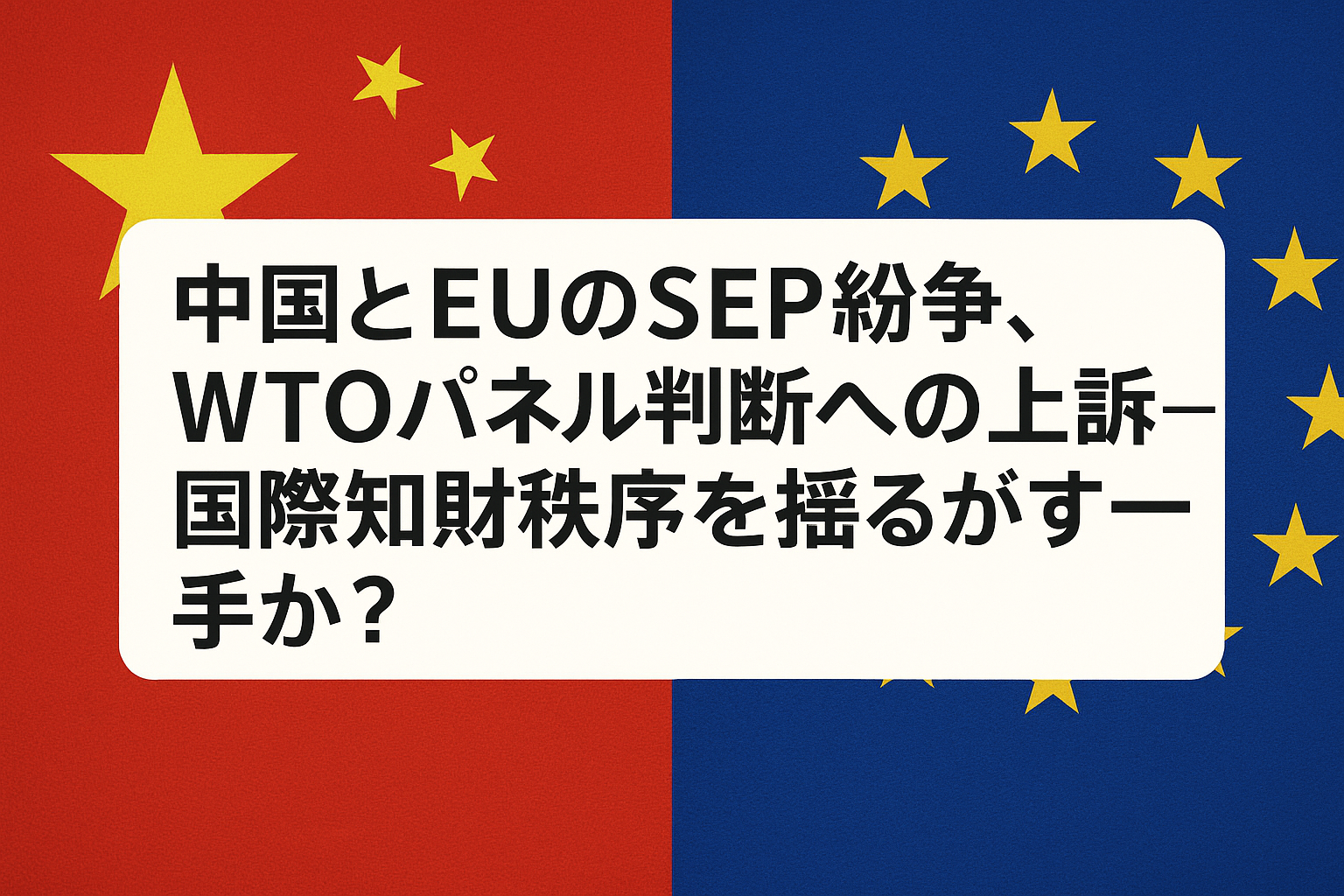On April 23, 2025, China’s Ministry of Commerce issued a statement regarding the European Union’s appeal to the Multi-Party Interim Appeal Arbitration Arrangement (MPIA) in response to a ruling by the World Trade Organization (WTO) dispute settlement panel. At the heart of the matter lies the conflict between China and the EU over Standard Essential Patents (SEPs). China welcomed the WTO ruling and expressed its intention to defend its national interests within the MPIA framework.
What Are SEPs? The Conflict Beneath the Surface
SEPs, or Standard Essential Patents, are patents deemed indispensable for implementing international technology standards. Examples include communication standards like 5G, Wi-Fi, and MPEG, all of which incorporate numerous SEPs. Companies holding SEPs are obligated to license them to others, but disputes frequently arise across jurisdictions regarding the fairness of royalty rates and the proper venue for enforcement.
The recent WTO panel decision is seen as siding with China’s position, countering the EU’s claims that Chinese companies were abusing injunctions in SEP licensing negotiations.
Appeal to the MPIA—Filling the Institutional Gap
Ordinarily, the WTO dispute settlement system includes an Appellate Body as its final authority. However, this body has been effectively paralyzed due to opposition from the United States. In response, a group of WTO members—including the EU and China—established the MPIA as an alternative mechanism for handling appeals.
The EU’s decision to appeal under the MPIA serves as a litmus test for this system, placing renewed focus on the structure of the global IP order and the credibility of the WTO framework.
China’s Strategy—From IP “Infringer” to Rulemaker
China has long faced criticism as an IP “infringer,” but recent years have seen rapid development of its domestic IP protection system. According to WIPO statistics, China now leads the world in patent filings, positioning itself as an IP powerhouse.
In its latest statement, China emphasized that it has “consistently prioritized IP protection” and reaffirmed its support for multilateralism based on international rules. This signals not just a defensive stance, but a proactive ambition to play a leading role in shaping global regulatory norms.
Looking Ahead—SEPs at the Nexus of IP and Trade
SEPs are not merely a licensing issue—they are deeply entwined with economic security, industrial policy, and diplomatic strategy. Continued legal and policy maneuvering between the EU and China is inevitable.
The outcome of the MPIA ruling may set a new international benchmark for SEP practices—or it may deepen existing rifts. As a key issue at the intersection of IP and global trade, this dispute warrants close attention for what it reveals about the future of technological supremacy.

